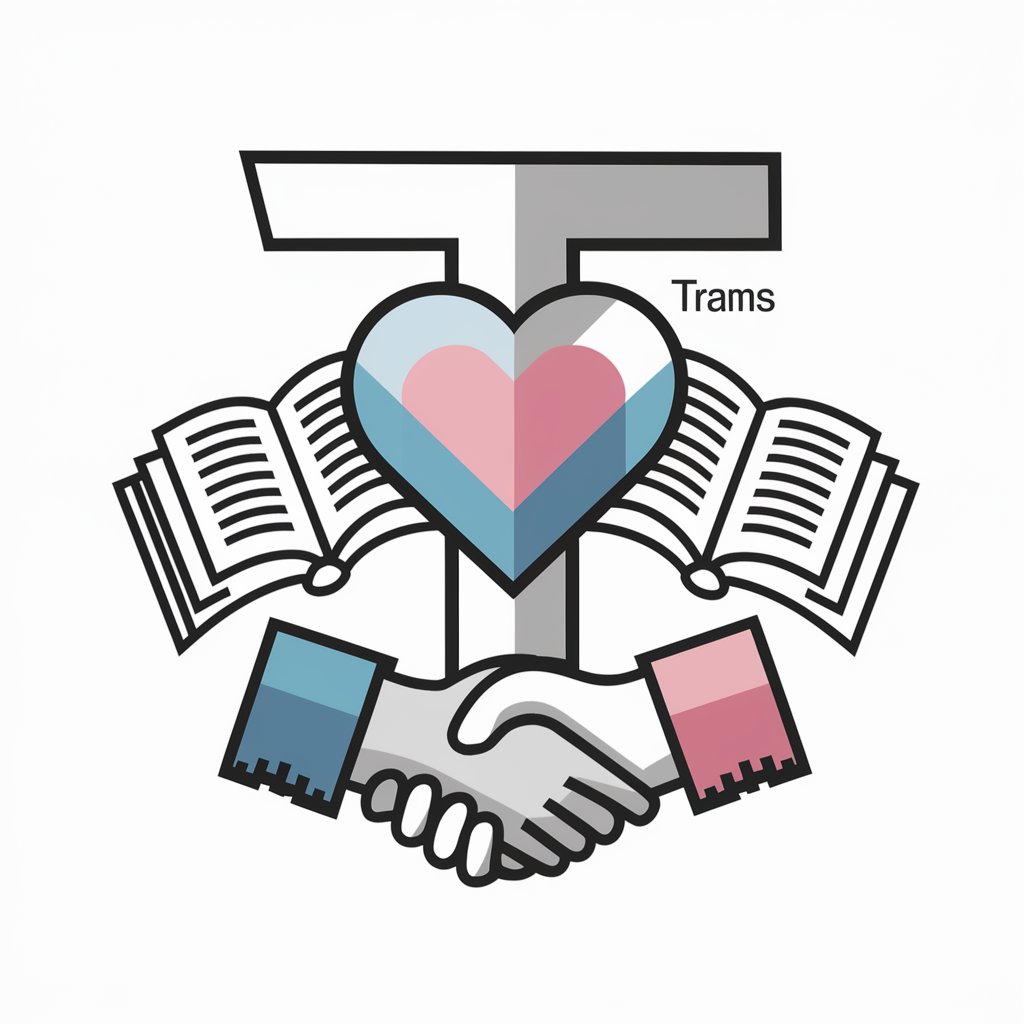9 GPTs for Social Support Powered by AI for Free of 2026
AI GPTs (Generative Pre-trained Transformers) for Social Support refer to a specialized category of AI tools designed to offer assistance, guidance, and solutions in various social support contexts. These tools leverage the advanced capabilities of GPT models to understand and generate human-like text, enabling them to provide tailored support, advice, and information to users seeking help in areas such as mental health, community services, and social care. By understanding natural language, these AI systems can interact in a conversational manner, making them highly relevant for tasks that require empathy, understanding, and personalized responses.
Top 9 GPTs for Social Support are: Virtual Therapist,Tampinha Legal,Stop Addictions 🍀,🤗 Compassionate Care Navigator 🤝,Give Love / Get Love meaning?,死党阿伟,Arrels Fundació,Trans,Golden Years Elderly Companion
Virtual Therapist
AI-Powered Virtual Support for You

Tampinha Legal
Turn Caps into Help with AI

Stop Addictions 🍀
Empowering recovery through AI

🤗 Compassionate Care Navigator 🤝
Empowering Through AI-Powered Support

Give Love / Get Love meaning?
Empowering connections through AI-powered positivity

死党阿伟
Your go-to AI buddy for life's curveballs

Arrels Fundació
Empowering lives with AI

Trans
Empowering understanding with AI-driven transgender insights.

Golden Years Elderly Companion
Empowering the elderly with AI support

Key Characteristics and Capabilities
AI GPTs for Social Support are distinguished by their adaptability, enabling customization from basic interaction to handling complex social support scenarios. Core features include advanced natural language understanding and generation, empathetic response modeling, and the ability to integrate with various communication platforms (e.g., chatbots, messaging apps). These tools can learn from interactions to improve their responses over time, offer multilingual support, and even perform sentiment analysis to better understand user emotions and needs. Additionally, specialized features may include web searching for relevant resources, image creation for therapeutic purposes, and data analysis to identify trends in social support needs.
Who Benefits from AI GPTs in Social Support
The primary beneficiaries of AI GPTs for Social Support include not only individuals seeking social or emotional support but also professionals and organizations within the social work, mental health, and community service sectors. These tools are accessible to novices without coding skills, thanks to user-friendly interfaces, while also offering advanced customization options for developers and technical users. This makes AI GPTs versatile tools for enhancing the efficiency and reach of social support services.
Try Our other AI GPTs tools for Free
Facial Cleansing
Discover personalized skincare advice with AI GPTs for Facial Cleansing. Tailored solutions for your skin type and concerns at your fingertips.
Pore Extraction
Discover the transformative power of AI GPTs for Pore Extraction, your advanced solution for analyzing pore data across skincare, materials science, and beyond.
Acne Treatment
Discover how AI GPTs for Acne Treatment can revolutionize your skincare routine with personalized advice, advanced analysis, and innovative solutions tailored just for you.
Outfit Improvement
Revolutionize your wardrobe with AI GPTs for Outfit Improvement – your personal stylist for making fashion-forward, personalized, and trend-savvy choices.
Eco Upgrades
Explore AI GPT tools for Eco Upgrades: specialized solutions designed to advance sustainability through innovation and data-driven insights.
Efficiency Advice
Discover how AI GPTs for Efficiency Advice can transform your productivity with tailored solutions, adaptable features, and accessible technology for every user.
Expanding Horizons with AI GPTs in Social Support
AI GPTs offer transformative potential in the social support sector by providing scalable, personalized assistance. They can function as first-line support, offering immediate assistance, directing users to appropriate resources, or even just providing a listening ear. Their integration into existing systems can enhance service delivery, making support more accessible and efficient. The user-friendly interfaces of these tools democratize access to support services, bridging the gap between technology and the diverse needs of communities.
Frequently Asked Questions
What exactly are AI GPTs for Social Support?
AI GPTs for Social Support are AI-driven tools designed to provide personalized assistance and support for a variety of social, emotional, and community-related needs, utilizing the natural language processing capabilities of GPT models.
How do these tools understand and respond to personal issues?
Through advanced natural language processing and machine learning techniques, these tools are trained on vast amounts of data, enabling them to understand context, interpret emotions, and generate empathetic, relevant responses.
Can AI GPTs for Social Support handle multiple languages?
Yes, many of these tools are designed to support multiple languages, making them accessible to a diverse global audience.
Are these tools accessible to individuals without technical skills?
Absolutely, these tools often feature user-friendly interfaces that require no coding knowledge, making them accessible to anyone seeking support.
How can developers customize these GPTs for specific social support needs?
Developers can access APIs and development platforms associated with these GPT tools to customize applications, integrate additional datasets, and tailor responses to fit specific social support contexts.
Can these AI tools replace human social workers or therapists?
While AI GPTs for Social Support can provide valuable assistance and information, they are not designed to replace human professionals. Instead, they serve as supplementary tools that can enhance and extend the reach of human-delivered services.
What measures are in place to ensure the privacy and security of sensitive information?
Reputable AI GPT tools for Social Support are built with privacy and security measures compliant with data protection regulations, ensuring that personal and sensitive information is handled securely.
How do these tools adapt and improve over time?
Through machine learning algorithms, these tools learn from each interaction, enabling them to continuously improve their understanding and responses to better meet user needs.